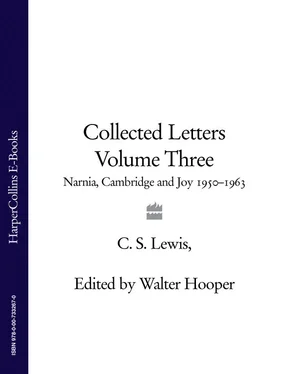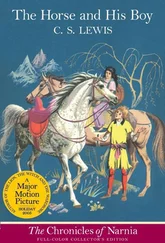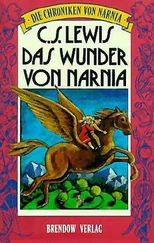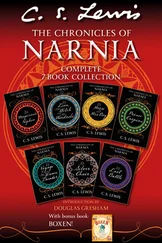It was a good idea to make the Links so silly that their trouble never really affects us. (Oh—by the way– does any ship carry her own gangways and pull them on board when she casts off? In my experience they always belong to the harbour and are pulled onto the quay.) Indeed you have done the Links so well that one wonders if it is a happy ending or whether the baby wouldn’t have had a better time being brought up by Pyng Pong ♀.
Anyway, I thoroughly enjoyed the book ‘yet had I rather if I were to choose Thy service in some graver subject use’ 111 –I’d like to see your remarkable powers of rendering atmosphere and swift action given their head in a good whacking heroical romance. But no doubt, in the present state of the publishing market, it wd. be crazy to advise you to do so.
Yours sincerely
C. S. Lewis
P.S. I’ve an uneasy feeling this is the sort of letter Dr. Field might have written—wh. raises another really dreadful idea.
TO MARG-RIETTE MONTGOMERY (W): 112
Magdalen College,
Oxford.
June 10th 1952
Dear Miss Montgomery,
(1.) My relations to Anthroposophy 113 were these. When I was a student, all my friends and I were ordinary modern Atheists. Then two of my friends got caught up by Steiner. 114 I loathed this and it led to frightful arguments for several years. During these arguments I heard nothing that would convert me to Anthroposophy: but the negative side of Steiner, his case against the common modern pseudo-scientific attitude, proved to be unanswerable. That is, I didn’t think what he affirmed was true, but I did think all his denials were right.
His shattering of the ordinary attitude left the way open for Christianity, so far as I was concerned. Since then I have always had a kindly feeling towards his system: and certainly the effect of it upon some anthroposophists I know appears to have been good. There is, however, an element of polytheism in it which I utterly reject. Steinerism is a species of Paganism (using that word in its proper sense, to mean the ancient pre-Christian religions). That is why it is (a.) Incompatible with Christianity: but (b.) Far nearer to Christianity than the ordinary modern materialism. For the Pagans knew more than the modern Ph.D’s. The right thing to say to your Ph.D. friends is ‘Yes. Steiner is nonsense: but nothing like such nonsense as the things you believe.’ There is more truth in his nonsense than in their sense. We are free to take out of Anthroposophy anything that suits us, provided it does not contradict the Nicene Creed.
(2.) Oh, I just ‘made up’ all those things in That Hideous Strength: i.e. I took existing evil tendencies and ‘produced’ them (in the geometrical sense–‘Produce the line AB to the point X’) to show how dreadful they might become if we didn’t take care. And you, apparently, have been living in a world where they had already in real life got a good deal nearer to my point X than I knew. Well, that is the trouble about satirising the modern world. What you put into your story as fantastically horrid possibilities becomes fact before your story is printed. The reality outstrips the satire!
With all good wishes. You can trust Steiner about fertilisers but not about the nature of Jesus Christ. (I think his architecture horrid, but that’s a matter of taste)
Yours very sincerely
C. S. Lewis
TO MARY VAN DEUSEN (W):
Magdalen College,
Oxford.
10/6/52
Dear Mrs. Van Deusen
The new photos raise extreme Sehnsucht: 115 each a landscape as fulfils my dreams. That is the America I wd. like to see, not the great cities, which, except superficially, are really much the same all over the earth.
I think psychiatry is like surgery: i.e. the thing is in itself essentially an infliction of wounds but may, in good hands, be necessary to avoid some greater evil. But it is more tricky than surgery because the personal philosophy & character of the operator come more into play. In setting a broken ankle all surgeons wd. agree as to the proper position to wh. the bones shd. be restored, because anatomy is an exact science. But all psychiatrists are not agreed as to the proper shape of the soul: where their ideas of that proper shape are based on a heathen or materialistic philosophy, they may be aiming at a shape we shd. strongly disapprove. One wants a Christian psychiatrist. There are a few of these, but nothing like enough.
If I can successfully say to Genia what you have often said in vain, that is not because of any quality in me but depends on a general (and at first sight cruel) law: we can all ‘take’ from a stranger what we can’t ‘take’ from our own parents. I listen with profit to elderly friends saying the very same things which I neglected or even resented when my father said them. Nay more: I can obey advice from others wh. I have often given myself in vain. I suppose this is one aspect of the vicariousness of the universe: Charles Williams’s view that every one can help to paddle every one else’s canoe better than his own. We must bear one another’s burdens because that is the only way the burdens can get borne: and ‘He saved others, himself He cannot save’ 116 is a fundamental law. 117
Yes: ‘things’ continue almost alarmingly ‘better’ with me. God bless you all
Yours
C. S. Lewis
TO WILLIAM BORST (P): 118
Magdalen College,
Oxford.
June 11th 1952
Dear Mr. Borst–
It takes so long to get anything typed now-a-days that I thought you wd. prefer the lesser nuisance of reading the specimen (asked for in your letter of June 4th) in my own hand. I think it raises all the problems wh. are likely to occur in Spenser–who will not need such heavy glossing as Shakespeare. The only one I was doubtful about was remembrance = memento in line ll. 119 Wd. they need that explained? (We don’t want to spoon-feed them more than is necessary.)
I am terrified by all the instructions about typing and doubt if I can master them. (You showed great discretion in not producing them at an earlier stage, as I shd. certainly not have touched the job had I known it involved all that!). I suppose # means ‘one-space’ and is not a challenge to a game of noughts and crosses. And what is meant by the typist ‘using’ the double right hand margin? In the specimen given she does precisely not use it but types straight on across it to the ultimate right hand margin. Do you mean ‘Let her draw a vertical line 8 spaces to the left of her actual right hand margin and then ignore this line in typing?’ As you begin to see, I have picked up none of the technique of a professional author. Sorry.
Yours sincerely
C. S. Lewis
P.S. You might let me have the specimen back.
TO HSIN’CHANG CHANG (BOD): 120 TS
REF.52/252.
Magdalen College,
Oxford.
12th June 1952.
Dear Mr. Chang,
If you would care to call on me here at 12 o’c. on Friday 20th, it would give me great pleasure.
Yours sincerely,
C. S. Lewis
TO ROBERT LONGACRE (W):
Magdalen College,
Oxford
June 19th 1952
Dear Mr. Longacre–
All opinions on new poetry are uncertain: especially on poetry read because one has been asked to read it and with the knowledge (which freezes up all the faculties) that one must express a view on it to the author.
You must therefore not attach too much importance to my ‘re-action’. The truth is, these poems don’t work—with me: they might with other readers, and, I dare say, better readers than I. The poetic species to which they belong—which might be called the Rhapsodical—is one to which I am very insensitive: I can’t bear Walt Whitman.
Читать дальше












